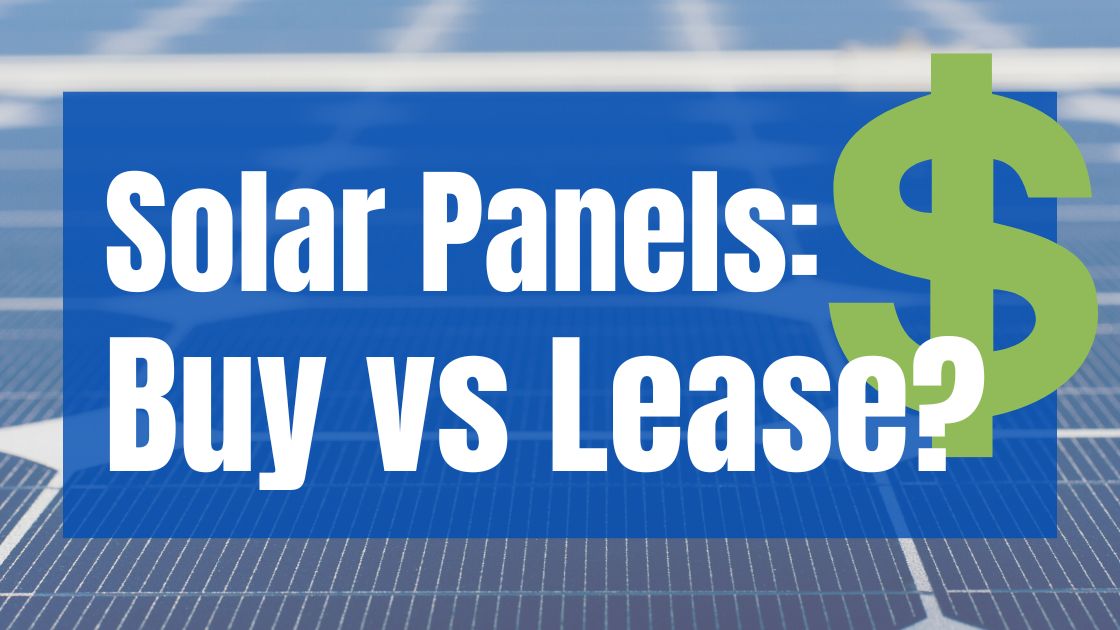06:40:03 pm 09/27/2023
Viewed: 4689
The Under-Examined Challenges in the Rooftop Solar Industry
While the recent legislative thrust to accelerate the adoption of rooftop solar panels in the United States, courtesy of the Inflation Reduction Act (IRA), is commendable, it inadvertently overlooks a segment of the population: early adopters whose solar installations are no longer functional. Many of these individuals invested in solar technology during its infancy in the 2010s, often via leasing arrangements with service providers. Numerous companies providing these services have since gone bankrupt, leaving consumers stranded with defunct installations.
Daniel Liu, the Director of Asset Commercial Performance at Wood Mackenzie, an esteemed energy research organization, highlights, "The lack of adequate servicing for older solar panels is a prevalent issue. The operational costs associated with such maintenance have led to a regrettable number of consumers falling through the cracks."
A troubling increase in complaints concerning solar panels has been recorded on the Federal Trade Commission's reportfraud.ftc.gov. As of September 2023, complaints have surged 31% from the previous year and risen a staggering 746% since 2018. These alarming figures come as solar adoption grows exponentially, spurred by the IRA and fluctuating energy prices.
Eric O'Shaughnessy, a clean energy consultant, notes that rooftop solar installations have burgeoned from 300,000 a decade ago to approximately 4 million today. Despite this substantial growth, regulatory oversight has barely evolved since 2014. As a result, consumers are increasingly vulnerable to unscrupulous companies that may be unresponsive or may have ceased operations.
Steve Drapeau, a resident of Walnut Creek, California, exemplifies this predicament. His solar system has been inoperable since August 2022, and despite his continuous efforts to engage Spruce Power, he has seen little to no resolution. An investigation into customer feedback indicates this lack of responsiveness is not isolated to Spruce Power; other firms, such as Sunnova and SunRun, also have a spotty track record.
State attorneys general have largely focused their enforcement efforts on emerging companies employing misleading sales tactics rather than scrutinizing the performance of companies responsible for maintaining existing solar installations. William Tong, the Attorney General of Connecticut, sums it up succinctly: "The emphasis has been on aiding the deceived, but by that juncture, the damage is irrevocable."
Despite the ethical and operational quagmires plaguing the industry, clean energy advocates are hesitant to critique these shortcomings for fear of hindering the broader adoption of solar technology.
The Pitfalls of Residential Solar Leasing
Solar leasing models, which once alleviated the prohibitive upfront costs, have contributed to the issue. According to Wood Mackenzie, in 2014, only a third of solar installations were owned outright by consumers, compared to two-thirds today. While leasing made solar adoption more accessible, it complicated the long-term financial viability for service providers. These leases were often sold in bulk to private equity firms, which may lack the infrastructure or incentive to provide ongoing maintenance and support.
Vikram Aggarwal, the CEO of EnergySage, a solar services marketplace, estimates that over 50% of all solar installations are effectively orphaned—abandoned by the original service providers. This is compounded by the fact that residential solar maintenance, per watt, is significantly more costly than utility-scale solar maintenance.
It becomes imperative, then, to scrutinize the residential solar industry, addressing these deficiencies before they undermine the considerable potential of solar energy in contributing to a sustainable energy future.
The decision to rent, lease, or purchase solar panels—or to avoid them altogether—is multifaceted and depends on a range of factors, including your financial situation, the geographic location of your home, your energy consumption needs, and your long-term objectives for energy independence and sustainability. Here's a more nuanced look at each option:
Leasing/Renting Solar Panels
Pros:
No large upfront cost.
Maintenance is generally taken care of by the leasing company.
Allows for immediate energy bill reduction without a significant investment.
Cons:
You do not own the solar panel system, so you don't qualify for federal tax credits or other incentives.
As the story indicates, if the leasing company goes bankrupt or has issues, you could be left with a non-functional system and complicated legal issues.
Leasing contracts can have clauses that make it hard to sell your home.
Purchasing Solar Panels
Pros:
You own the solar panel system, allowing you to take advantage of tax credits and other financial incentives.
Increases the resale value of your home.
You have control over the maintenance and performance of your system.
Cons:
High initial investment.
Maintenance is your responsibility, which can be costly if not factored into the financial planning.
Avoiding Solar Altogether
Pros:
No risks associated with dealing with solar companies.
No need to worry about maintenance or initial investment costs.
Cons:
Missed opportunity to reduce long-term energy bills.
Does not contribute to reducing your carbon footprint or increasing energy independence.
Market Outlook:
The solar market is continually evolving, with technology becoming more efficient and costs generally trending downwards. Regulatory measures and incentives are also adapting, although perhaps not as quickly as some would like.
Given the complexities outlined in the story you provided, there's a case to be made for exercising caution, particularly with leasing options from lesser-known or financially unstable providers. On the other hand, the solar market's general trajectory suggests that these are growing pains in an otherwise promising industry. Thorough research, perhaps consultation with an energy advisor, and diligent contract review can mitigate many of the potential pitfalls.
In summary, each of these options comes with its own set of risks and rewards, tailored to different financial situations and priorities. Given the pressing need for sustainable energy solutions and the potential long-term savings, solar remains an attractive option for many—so long as due diligence is performed.
While the recent legislative thrust to accelerate the adoption of rooftop solar panels in the United States, courtesy of the Inflation Reduction Act (IRA), is commendable, it inadvertently overlooks a segment of the population: early adopters whose solar installations are no longer functional. Many of these individuals invested in solar technology during its infancy in the 2010s, often via leasing arrangements with service providers. Numerous companies providing these services have since gone bankrupt, leaving consumers stranded with defunct installations.
Daniel Liu, the Director of Asset Commercial Performance at Wood Mackenzie, an esteemed energy research organization, highlights, "The lack of adequate servicing for older solar panels is a prevalent issue. The operational costs associated with such maintenance have led to a regrettable number of consumers falling through the cracks."
A troubling increase in complaints concerning solar panels has been recorded on the Federal Trade Commission's reportfraud.ftc.gov. As of September 2023, complaints have surged 31% from the previous year and risen a staggering 746% since 2018. These alarming figures come as solar adoption grows exponentially, spurred by the IRA and fluctuating energy prices.
Eric O'Shaughnessy, a clean energy consultant, notes that rooftop solar installations have burgeoned from 300,000 a decade ago to approximately 4 million today. Despite this substantial growth, regulatory oversight has barely evolved since 2014. As a result, consumers are increasingly vulnerable to unscrupulous companies that may be unresponsive or may have ceased operations.
Steve Drapeau, a resident of Walnut Creek, California, exemplifies this predicament. His solar system has been inoperable since August 2022, and despite his continuous efforts to engage Spruce Power, he has seen little to no resolution. An investigation into customer feedback indicates this lack of responsiveness is not isolated to Spruce Power; other firms, such as Sunnova and SunRun, also have a spotty track record.
State attorneys general have largely focused their enforcement efforts on emerging companies employing misleading sales tactics rather than scrutinizing the performance of companies responsible for maintaining existing solar installations. William Tong, the Attorney General of Connecticut, sums it up succinctly: "The emphasis has been on aiding the deceived, but by that juncture, the damage is irrevocable."
Despite the ethical and operational quagmires plaguing the industry, clean energy advocates are hesitant to critique these shortcomings for fear of hindering the broader adoption of solar technology.
The Pitfalls of Residential Solar Leasing
Solar leasing models, which once alleviated the prohibitive upfront costs, have contributed to the issue. According to Wood Mackenzie, in 2014, only a third of solar installations were owned outright by consumers, compared to two-thirds today. While leasing made solar adoption more accessible, it complicated the long-term financial viability for service providers. These leases were often sold in bulk to private equity firms, which may lack the infrastructure or incentive to provide ongoing maintenance and support.
Vikram Aggarwal, the CEO of EnergySage, a solar services marketplace, estimates that over 50% of all solar installations are effectively orphaned—abandoned by the original service providers. This is compounded by the fact that residential solar maintenance, per watt, is significantly more costly than utility-scale solar maintenance.
It becomes imperative, then, to scrutinize the residential solar industry, addressing these deficiencies before they undermine the considerable potential of solar energy in contributing to a sustainable energy future.
The decision to rent, lease, or purchase solar panels—or to avoid them altogether—is multifaceted and depends on a range of factors, including your financial situation, the geographic location of your home, your energy consumption needs, and your long-term objectives for energy independence and sustainability. Here's a more nuanced look at each option:
Leasing/Renting Solar Panels
Pros:
No large upfront cost.
Maintenance is generally taken care of by the leasing company.
Allows for immediate energy bill reduction without a significant investment.
Cons:
You do not own the solar panel system, so you don't qualify for federal tax credits or other incentives.
As the story indicates, if the leasing company goes bankrupt or has issues, you could be left with a non-functional system and complicated legal issues.
Leasing contracts can have clauses that make it hard to sell your home.
Purchasing Solar Panels
Pros:
You own the solar panel system, allowing you to take advantage of tax credits and other financial incentives.
Increases the resale value of your home.
You have control over the maintenance and performance of your system.
Cons:
High initial investment.
Maintenance is your responsibility, which can be costly if not factored into the financial planning.
Avoiding Solar Altogether
Pros:
No risks associated with dealing with solar companies.
No need to worry about maintenance or initial investment costs.
Cons:
Missed opportunity to reduce long-term energy bills.
Does not contribute to reducing your carbon footprint or increasing energy independence.
Market Outlook:
The solar market is continually evolving, with technology becoming more efficient and costs generally trending downwards. Regulatory measures and incentives are also adapting, although perhaps not as quickly as some would like.
Given the complexities outlined in the story you provided, there's a case to be made for exercising caution, particularly with leasing options from lesser-known or financially unstable providers. On the other hand, the solar market's general trajectory suggests that these are growing pains in an otherwise promising industry. Thorough research, perhaps consultation with an energy advisor, and diligent contract review can mitigate many of the potential pitfalls.
In summary, each of these options comes with its own set of risks and rewards, tailored to different financial situations and priorities. Given the pressing need for sustainable energy solutions and the potential long-term savings, solar remains an attractive option for many—so long as due diligence is performed.
No video exists.





Comments